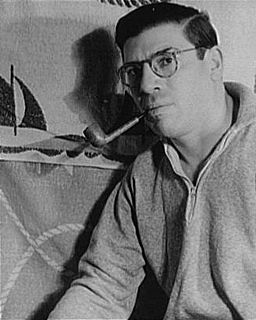A Quote by Leslie Pietrzyk
My only obligation as a fiction writer is to the story, to make it good, so good the busy reader doesn't feel that flipping those pages was a waste of time. And I still believe that.
Related Quotes
I dislike that premise implies that a fiction writer is incapable of dreaming up stories that can bring readers to tears, that if you are lucky enough to be living a pretty sedate life ,as I am, you've got nothing worthy of writing about, that you're incapable of making a reader's gut wrench.Frankly, that's what makes readers nervous, the sorcery of you or me or any good fiction writer making up characters who feel like real people, of telling a story that feels true but isn't.
I believe as musicians and artists we have an obligation to our souls. What that is? Only each one of us knows. I can speak for myself and say my obligation is to be happy. When I'm happy, I make great music. When I'm unhappy and my heart is broken, I may make brokenhearted music, but it still sounds good.
I believe as musicians and artists we have an obligation to our souls. What that is? Only each one of us knows. I can speak for myself and say my obligation is to be happy. When I’m happy, I make great music. When I’m unhappy and my heart is broken, I may make brokenhearted music, but it still sounds good.
Good writing is good writing. In many ways, it’s the audience and their expectations that define a genre. A reader of literary fiction expects the writing to illuminate the human condition, some aspect of our world and our role in it. A reader of genre fiction likes that, too, as long as it doesn’t get in the way of the story.
Whether you do stand-up comedy or write a story, you have a duty to deliver. As a comedian, you walk out on stage, and you have a minute to hook them, or they'll start booing. As a writer, it's very similar. A reader doesn't have time to say, 'I'll give him 50 pages, as it's not very good yet, but I hope it'll get better.'
When I was fifteen I wrote seven hundred pages of an incredibly bad novel - it's a very funny book I still like a lot. Then, when I was nineteen I wrote a couple hundred pages of another novel, which wasn't very good either. I was still determined to be a writer. And since I was a writer, and here I was twenty-nine years old and I wasn't a very good poet and I wasn't a very good novelist, I thought I would try writing a play, which seems to have worked out a little better.
How often I have tried to tell writing students that the first thing a writer must do is love the reader and wish the reader well. The writer must trust the reader to be at least as intelligent as he is. Only in such well wishing and trust, only when the writer feels he is writing a letter to a good friend, only then will the magic happen.
That is as true for fiction or non-fiction. The writer has to really know their subject. It is really important to remember that the readers are a lot smarter than the writer. Also, good writing has to do with rewriting. You will never get it right the first time. So you rewrite and rewrite again until you get it right. Until you, and the reader, will be able to visualize what you're writing about.
It is only when you open your veins and bleed onto the page a little that you establish contact with your reader. If you do not believe in the characters or the story you are doing at that moment with all your mind, strength, and will, if you don't feel joy and excitement while writing it, then you're wasting good white paper, even if it sells, because there are other ways in which a writer can bring in the rent money besides writing bad or phony stories.































